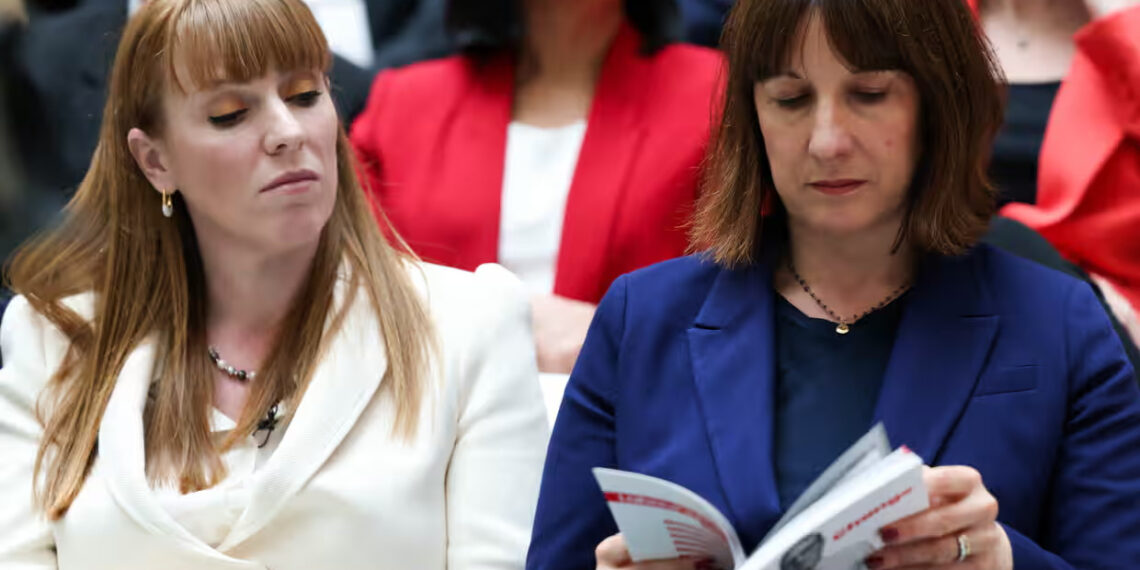A confidential memo from Deputy Prime Minister Angela Rayner to Chancellor Rachel Reeves has stirred internal debates within the Labour government, highlighting growing tensions over the party’s fiscal direction.
The document, which outlined a range of potential tax hikes targeting wealthier individuals and corporations, was reportedly sent weeks before Reeves’ spring financial statement in March.
Rayner’s proposals, valued at an estimated £3bn to £4bn annually, included reviving the pensions lifetime allowance, raising dividend tax rates for high earners, and increasing corporation tax for banks. While framed as discussion points rather than concrete policy, the suggestions reveal mounting concerns from the Labour left about Reeves’ adherence to strict spending rules.
The chancellor ultimately rejected the proposals, opting instead for public spending cuts that align with her fiscal strategy. The memo, titled “alternative proposals for raising revenue,” suggested eight tax measures that Rayner argued would not violate Labour’s 2024 election pledge to avoid raising taxes “on working people.”
Among the suggestions was the elimination of inheritance tax relief on shares listed on the AIM stock exchange, as well as the abolition of the £500 dividend tax-free allowance. Rayner also recommended freezing the threshold for the 45% additional income tax rate and closing stamp duty loopholes used by property traders employing corporate structures.
One of the more significant proposals was the reintroduction of the pensions lifetime allowance, scrapped by former Conservative Chancellor Jeremy Hunt. Labour initially vowed to restore the measure while in opposition, but later abandoned that promise. According to the memo, reversing this policy could generate up to £800m in additional revenue.
The document landed on Reeves’ desk two weeks ahead of her March 26 fiscal statement, during a period of escalating cabinet concern over looming cuts in the summer spending review. Rayner reportedly voiced her concerns directly during a March cabinet meeting, where several ministers questioned whether the government had adequately explored revenue-raising alternatives.
Memo Defended
Although the memo has not been officially endorsed, government insiders defended the exchange as part of routine internal policy discussions. “It is not unusual for documents like these to be circulated informally across departments,” one source noted, stressing that they do not signal a shift in government policy.
Nevertheless, the leak underscores the ideological rift within Labour’s top ranks, particularly between Rayner and centrists aligned with Prime Minister Keir Starmer and Reeves. The chancellor’s commitment to fiscal restraint, while intended to project economic responsibility, has drawn criticism from within the party over cuts to overseas aid and tougher personal independence payment requirements.
Looking ahead to the autumn budget, Reeves may come under renewed pressure to consider broader revenue options, especially if fiscal forecasts deteriorate. For now, however, she has resisted calls to impose new taxes.
Environment Secretary Steve Reed attempted to downplay the divide, insisting that the cabinet remains “united behind the government’s plan for change.” He pointed to changes already enacted, such as adjustments to non-domicile tax rules, as evidence that Labour is ensuring the wealthy pay more.
But the opposition was quick to seize on the leaked memo. Shadow Chancellor Mel Stride said it confirmed suspicions about Labour’s underlying tax ambitions.
“The chancellor has repeatedly refused to rule out another tax raid in the autumn, and now we know why – Labour’s top brass, including the deputy prime minister, want to come back for more.”
Mel Stride
The government, for its part, remained tight-lipped. A spokesperson responded simply: “We don’t comment on leaks.”
As Labour navigates its first months in power, the debate over tax and spending is shaping up to be one of its most contentious internal battles, one that may define the party’s ability to balance reform with fiscal responsibility.
READ ALSO: Political Will Lacking in Ghana’s Urban Decongestion Fight


















